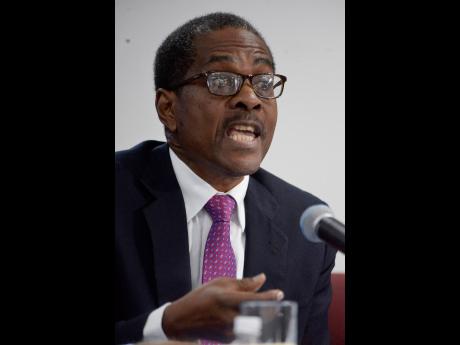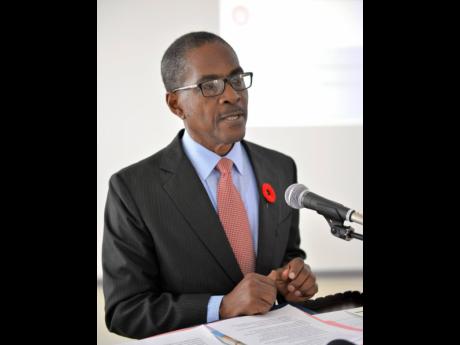Panton rubbishes conflict of interest claim
A suggestion that the auditor general’s presence on the Integrity Commission is in breach of the constitution and poses a conflict of interest has been dismissed by chairman of the anti-corruption agency, Justice Seymour Panton.
The former president of Jamaica’s Court of Appeal is questioning what, if anything, has triggered recent concerns about the auditor general’s membership on the anti-corruption body.
He argued that over the last five decades, Jamaica’s auditors general have been members of commissions dealing with integrity and there has not been a dissenting voice until recently.
“It would be good to know what, if anything, has happened in recent times to bring into question the auditor general’s membership of the commission?” Panton asked, in a position paper delivered Wednesday to members of the Integrity Commission Oversight Committee of Parliament.
At a meeting of the committee last year, Everald Warmington, St Catherine South West member of parliament, raised objection to the use of external auditors to certify the commission’s accounts, arguing that any government body that obtained money from the public purse fell under the auditor general.
He charged that the auditor general should have recognised a defect in the law and step down as a commissioner. “She can’t sit as a commissioner because the constitution is breached right there,” Warmington had insisted.
However, Panton said that “adverse comments” about the appointment of the auditor general as a commissioner might be due to a lack of knowledge of the historical context, as well as of the existing legislation and other arrangements that are in place for the auditing of the accounts of the Integrity Commission, and the reporting of the results.
“This conclusion seems appropriate as no valid reason has been advanced by the few critics for the position they have taken,” he said.
On the question of the auditing of the accounts of the Integrity Commission, Panton said that the Integrity Commission Act required that such accounts be audited by an auditor appointed each year by the anti-corruption body, with approval of the finance minister.
“Where any other audit or accounts may be required of the commission, arrangements are in place for such to be done by independent auditors. That has been the practice, and the Ministry of Finance is informed. There is solid legal opinion in support of this process,” he added.
Addressing concerns about conflict of interest, Panton said, in law, a conflict of interest arises when someone has a competing professional or personal obligation, or a personal or financial interest, that would make it difficult for that person to fulfil his or her duties fairly. “That situation does not exist in the circumstances being discussed,” he said of the auditor general.
“However, assuming that there is a perception of a conflict of interest (which is definitely not admitted), the situation has been managed effectively and efficiently by the arrangements that have been made.”
He said that Jamaica’s constitution has been in existence for nearly 60 years, and for 50 of those years, the auditor general has been part of the Integrity Commission. He noted that over the decades, not one of Jamaica’s distinguished legal scholars had detected any constitutional problem with this arrangement.


